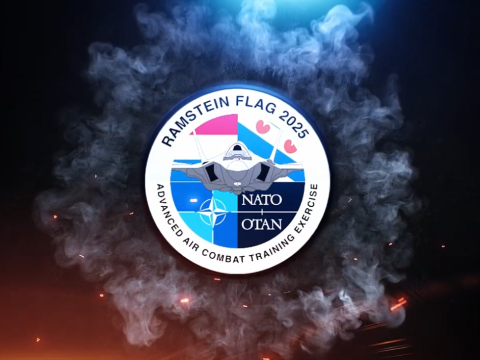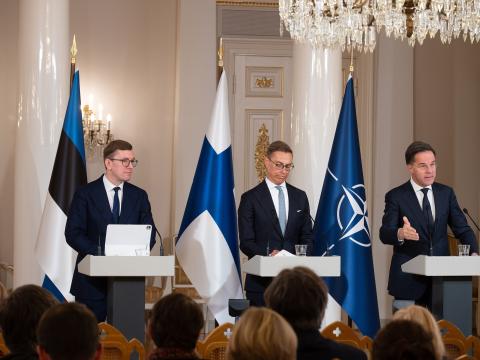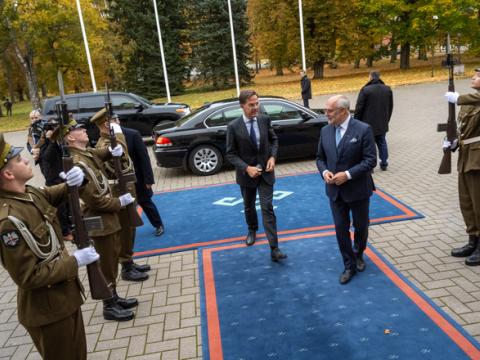A Transatlantic Jam Session Plans for the Post-COVID-19 World
An ad hoc group of international defense and national security experts are brainstorming the future in a two-day online symposium analyzed by tools from the world’s most well-known artificial intelligence (AI) computer. Titled “Securing the Post-COVID Future,” the event is exchanging ideas from among active duty military and civilian expertise. Findings during the 50-hour nonstop event are being evaluated by tools from the Watson platform, IBM’s question-answering computer that bested Jeopardy!’s top two champions in a competition a few years ago.
The Transatlantic Security Jam, as it is known, is based on IBM’s Innovation Jam platform. The security jam, which is running May 12-14, is divided into six forums: competition in a COVID environment, including dealing with disinformation and hybrid threats; NATO core tasks in action, featuring resilience, readiness and responsiveness; EU cooperation and autonomy, and the global role of the EU after the pandemic; transatlantic collaboration, including NATO and EU cooperation; technical and industrial cooperation; and the post-COVID relationship with a rising China. Experts will host and promote discussions in each forum as the Jam wends its way through the 50-hour session.
Active participants come from a list of trusted partners located around the world. They include the U.S. Office of the Secretary of Defense (OSD) and the European Command, Spain, Greece, Croatia, Finland, the George C. Marshall Center, the Center for a New American Security, the NATO Industrial Advisory Group, the Hybrid Center of Excellence and AFCEA International. Participants’ discussion points will include military, financial, law enforcement, intelligence, health and supply chain issues.
The overall objective of the jam is a broad dialogue and conversation that generates tangible ideas for security in the post-COVID-19 environment, says Leendert Van Bochoven, global lead for defense and intelligence, IBM. He believes the coronavirus has the potential for a significant impact on the global security picture. Michael C. Ryan, deputy assistant secretary of defense for Europe and NATO, OSD Policy, offers that the allies can mitigate the negative consequences that emerge from the new security picture by developing common approaches with pooled assets.
Ryan continues that he hopes this Jam conversation brings about the relevant insights and ideas of allies and partners to show the most important ways forward, along with a clear idea of approaches to take, both near-term and mid-term. His early take, based on recent new coverage in Europe, that a hot topic among European participants is the range of activities from the People’s Republic of China. These fall under the first forum category of disinformation, and the European response represents a backlash against those activities, as well as delivering inadequate relief supplies and other political practices, he offers.
Think tank participants will moderate and facilitate the discussion as Jam hosts. These think tanks, along with other organizations, will form the basis for sourcing the participants. Invitations to participate are being sent out through the organizations’ trusted networks.
Van Bochoven explains that the Watson tools will assess the text of the Jam in real time. Along with the participating think tanks, the analytics will identify ideas, highlight the information and monitor the conversation for positive and negative tones. The analytics tools and accompanying humans will team to bring key ideas forward in the conversation as they develop.
Ryan emphasizes the importance of participation by as many people as possible from the organizations’ trusted networks. AFCEA International, as one of the Jam hosts, has invited its members to participate, Van Bochoven notes. He adds that their participation is precisely the sort of activity hoped for by the planners in the Jam.
Both government and industry personnel largely are teleworking, Ryan points out, so accessing the Jam will be less difficult and more routine. “It should be a very rich conversation among governments, think tanks, experts in civil society and universities who can come together in the midst of the crisis and think forward,” he states.
“This is a great example of a voluntary community of interest, of impressive individuals and organizations, coming together because they all see a common need and they all contribute from their substance in ways that they offer,” Ryan says.
The report on the Jam results will be issued around the end of the month, after which NATO and the European Union will be able to review its findings at their regularly scheduled meetings in the summer, Ryan suggests.





Comment
As active staff in public
As active staff in public order and safety public I would like to join to this voluntary group in order to actively participate as contributor and to keep up to date with thelatest trends in this area.
thank you
Comments